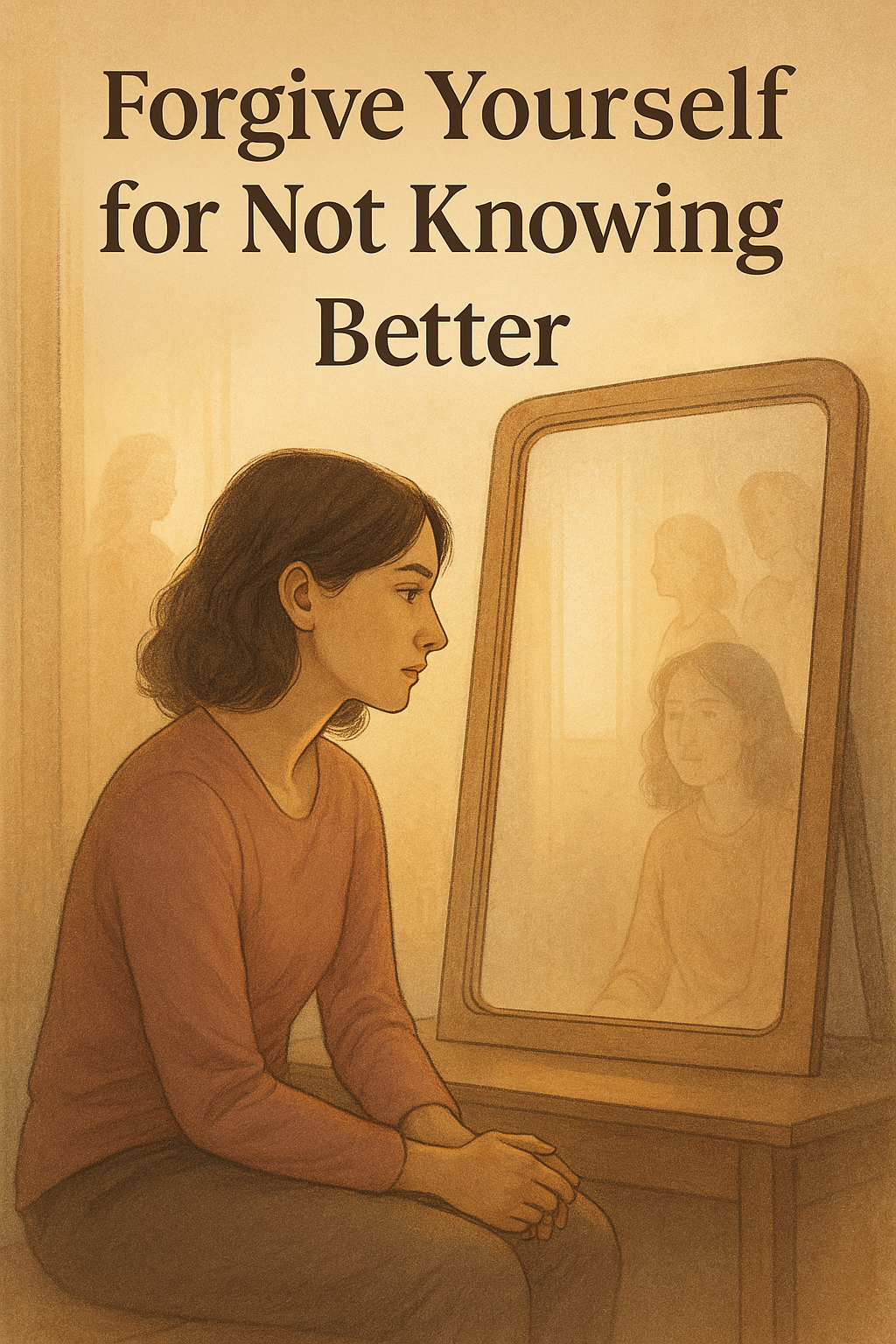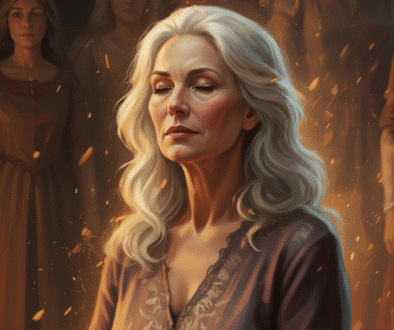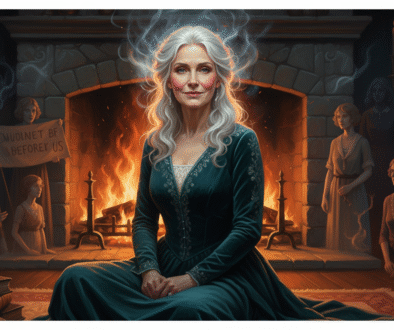
How to Forgive Yourself for Not Knowing Better Before
Reflections on Growth, Awareness, and Letting Go
There comes a time in life when you look back and realize — I truly didn’t know better before.
And it’s not an excuse. It’s a quiet truth that brings both peace and humility.
I’ve never been a person full of regrets. Maybe I have moments of “if I had known then what I know now”, but not regret in its destructive form. Because I know that at that time, with the understanding and awareness I had, I truly did the best I could.
Sometimes I even laugh at how seriously I took some things — how much energy I gave to people or situations that now wouldn’t even make me blink. But that’s how life shapes us: through small and big missteps that only make sense later.
Forgiveness, especially self-forgiveness, is a tricky thing.
It’s not like cleaning a table where you wipe off the dust and it’s gone. No, forgiveness is more like a boomerang — it comes back, again and again, sometimes gently, sometimes hitting you right in the heart when you least expect it.
You can say “I’ve moved on”, but one random memory, smell, or song brings it all back. That’s the thing — we never really erase the past; we just learn to live with it without letting it control the steering wheel.
In psychologia, they say awareness is the first step to healing.
In spirituality, the Vedas teach that karma is not punishment — it’s guidance.
And in my own understanding, both meet somewhere in the middle: life gives you back what you need to understand, not what you deserve.
Sometimes I sit and wonder why I think so much, why I analyse, question, feel deeply, then write it all down as if I were a philosopher who missed her calling. But then again, maybe that’s exactly what I am — a thinker in a world that often runs too fast to think.
I’ve made mistakes, big and small. I’ve trusted people I shouldn’t have, said things I wish I hadn’t, and stayed silent when I should’ve spoken.
But I also know — I wasn’t careless, I was just unaware.
There’s a big difference.
Now, when those old memories knock at my door, I don’t fight them. I let them in. I let them sit. And when they see I’m not giving them much attention, they quietly leave.
That’s my process.
Regret is useless — that’s my mantra.
The past has no expiry date, but it definitely loses taste when you keep chewing on it.
I remind myself: If I stay there too long, I’ll get stuck — and that’s not just sad, it’s stupid. And I am definitely not stupid.
So yes, I didn’t know better before. But I do now.
And that’s the point of being alive — learning, messing up, realising, growing, forgiving, and laughing at it all when the storm settles.
What I understand is this — maybe that’s what forgiveness really is, not a sudden enlightenment, not some holy moment of release, but a slow, ongoing conversation with yourself where you learn to say, “I see you. I understand. And I still love you.”
And then comes the harder part — the question that sits quietly behind that sentence:
Do I love myself?
Can I look into the mirror and say, “Yes, I love me”?
To be honest… not yet.
Maybe because I’m not ready.
Or maybe there’s a deeper truth I still need to understand — one that will let me, without doubt, say, “Yes, I love me.”
But what I know for sure is this: I accept me.
I know I’m far from harming anyone, at any level.
I know the good sides of me — and even the “bad” ones, as people define them — because deep inside, I know I’m still learning. I know there are lessons waiting, things I must still uncover about myself.
And perhaps that’s what life is — the art of knowing yourself and owning it.
The Vedic teachings say that true knowledge is self-knowledge — Atma Vidya.
To know the Self is to dissolve illusion. And maybe forgiving yourself is the first step toward that. Not as a ritual, but as a recognition that the divine in you is still unfolding — imperfectly, beautifully, honestly.
I still remember being a teenager, sitting in a math class with a teacher who simply did not like me. I tried everything — preparing, studying, trying to prove I understood the chapter. But my efforts meant nothing.
He’d give me the lowest marks, sometimes without even checking my paper. I talked to my parents, but they didn’t see it. They said, “He must have a reason — you must’ve done something.”
But I hadn’t.
I remember the fear, sitting like a stone in my chest during his class. How I’d shrink, trying to be invisible, wishing the class would end.
Later, when the truth came out — when he was caught for unfair treatment and eventually expelled — no one said sorry to me. My parents never even brought it up again.
For years, I carried that silent ache — not just because of him, but because the people I trusted most didn’t believe me.
It took me years to forgive that feeling, that lonely sense of not being seen.
And now, as an adult, I see it differently. My anger wasn’t really toward my parents — it was toward a system that taught them to trust authority more than their child’s truth.
So yes, I forgive them. But more importantly, I forgive myself — for holding on to that pain for so long, for believing that not being believed somehow meant I wasn’t enough.
That’s the circle of forgiveness — it keeps returning until you learn to meet it with softness instead of resistance.
So when I say I’m still learning to love myself, I mean — I’m still learning to see all my younger selves with compassion.
The scared girl in the math class. The woman trying to be perfect. The thinker who sometimes feels too much.
All of them — parts of me still becoming whole.
Because forgiveness isn’t about being perfect.
It’s about being honest enough to say —
“I did the best I could. And if that wasn’t enough then, it’s still enough now.”


